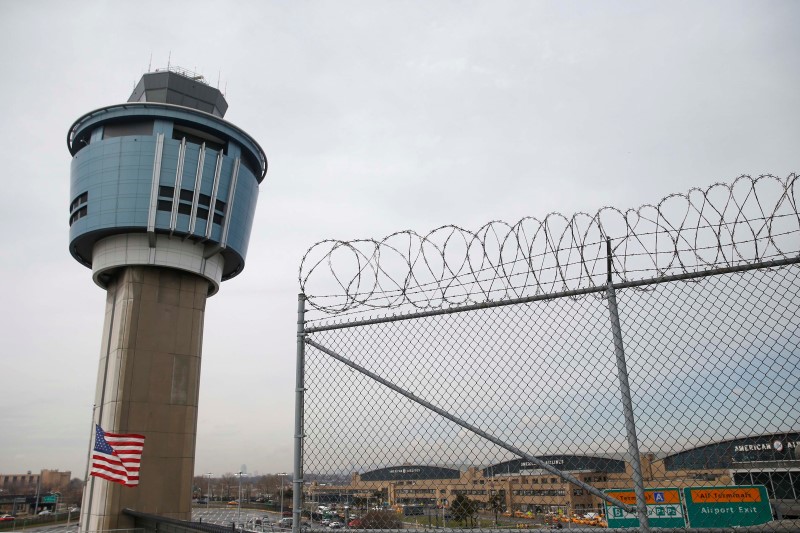By David Shepardson
WASHINGTON (Reuters) - The U.S. Congress is divided over whether to privatize the nation's air traffic control system as both chambers advance bills to expand airline passenger protections.
On Thursday, the Senate Commerce, Science and Transportation Committee adopted legislation that includes Federal Aviation Administration reforms, but unlike a House panel, does not spin off air traffic control and leaves it with the FAA.
"The support is not there," said Senator Bill Nelson, the top Democrat on the panel.
The U.S. House Transportation and Infrastructure Committee approved the privatization plan on Tuesday, putting air traffic control under the oversight of a nonprofit corporation.
President Donald Trump has said the move would modernize air traffic control and lower flying costs.
The proposal has drawn fire from private plane owners and rural airports. Critics say it would hand control of a key asset to special interests and big airlines.
American Airlines Group Inc, United Airlines, Southwest Airlines Co and JetBlue Airways Corp all back the proposal.
Congress has until Sept. 30 to reauthorize the FAA, but Republican Senator John Thune, chairman of the committee, said the Senate may not take up the proposal until after the August recess, potentially leaving little time to come up with a compromise measure.
The Senate bill would require new rules prohibiting cancellation, baggage, seat selection and same day change fees that are not "reasonable and proportional."
Airlines for America, an airline trade group, said it would result in "government-mandated price controls" and should be rejected.
In 2016, U.S. airlines collected $7.1 billion in baggage and reservation change fees.
Both measures would make it illegal for an airline to bump an already boarded passenger from a flight. In April, a United passenger was forcibly removed from his seat, prompting public outrage. The airline has since banned the practice.
The Senate bill also requires new rules that would mandate airlines promptly refund passengers for baggage fees or other fees if they do not receive services.
The House bill would require the FAA to set minimum seat sizes on U.S. airlines and a minimum distance between rows to "protect the safety and health of airline passengers."
The average distance between rows of seats has dropped from 35 inches in the 1970s to about 31 inches today, supporters say, and the average width of airline seats has shrunk from 18 inches to about 16-1/2 inches.
One contentious issue is training requirements for pilots, and whether certain simulated training hours can be counted.
Thune said that two-thirds of U.S. airports are only served by regional carriers and that there is a "crisis" in trying to attract pilots, while Democrats said the revised rules could lead to unqualified pilots.
Both bills would seek to speed approval of some commercial drone use and testing, while studying privacy implications. The measures also require medium- and large-sized airports to provide clean private rooms in all terminals for nursing mothers and would enshrine a ban on making in-flight mobile phone calls in law.

The Senate bill would direct a study of airplane air quality and require a study of whether airlines are shrinking airplane bathrooms to add more seats.